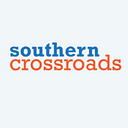Rednecks for Black Lives

I’m talking with y’all today — my fellow rednecks — to invite you to show up for Black Lives.
My name is Beth Howard. I grew up in a majority white working class community in rural Eastern Kentucky. I am a hillbilly and a redneck and I’m showing up in defense of Black Lives.
I love our people. We are friendly and will always ask how your family is even if we just met. Country people have the best recipes and tell the best stories — most of them true or at least based on the truth. We are generous and share what we have with those who need it most. When we’re at our best, that means whether white, Black, or Brown, we look out for each other.
There is a lot of suffering in Appalachia and the rural South. Families struggle to keep food on the table and roofs over their heads. Most of the meaningful good paying jobs that defined the region are gone. Most people can’t afford their medication or to go to the doctor when they’re sick and too many people struggle with addiction and have no options for treatment.
We’re told to blame Black folks, immigrants, and people of color for our suffering, keeping us fighting each other instead of rich folks, corrupt politicians, and big business who are busy padding their wallets. Too many times we’ve believed these lies. But we don’t have to believe them anymore. We can make a different choice.
Poor and working class white folks showing up alongside Black folks and people of color demanding justice is actually exactly who we are. For decades the label “redneck” has been thrown at us to degrade us but it’s time we reclaim it. The term redneck actually comes from the nation’s largest labor uprising, the Battle of Blair Mountain in West Virginia in 1921, when a multiracial group of 8,000 miners fought coal company operators to unionize. The power of working people coming together was so threatening that coal company owners brought in 3,000 lawmen and strikebreakers to tear them apart. The battle ended after approximately one million rounds were fired and the United States Army intervened by presidential order and called in the West Virginia National Guard. Up to 100 people were killed and many more arrested. Even though the miners did not get their union at the end of that battle, it laid the foundation for a much bigger labor movement in years to come, exposed the dangers miners faced in the West Virginia coalfields, and maybe more than anything created power in the multiracial solidarity of poor and working people. The miners were called rednecks because of the red bandannas tied around their necks to indicate they were union.
Billionaires and the crooked politicians who keep them in power know they are outnumbered when Black, Brown, and white working people come together. That’s why they try so hard to divide us. When we see headlines about rioting and looting, let’s speak up and move into action to disrupt that divide and conquer tactic. Hold onto the truth that rich white folks have looted the lives, labor, and imaginations of poor people for centuries. Let’s not forget that the top 3 billionaires made $485 billion over the past 10 weeks while 40 million Americans filed for unemployment. Let’s remember that greedy billionaires continue to amass wealth while children and families go hungry.
It’s time to make a choice. Everything we want for our lives, our families, and our communities depends on us joining with Black folks to say police violence and racism must end. From Florence Reece, a white activist and union leader’s wife in Harlan County, Kentucky, to the cry we hear in the streets demanding that Black Lives Matter: “Which Side Are You On?”
Join me and so many other rednecks in solidarity alongside the Movement for Black Lives. Sign up here to be involved in our work. We have everything to gain.
Love and Solidarity,
Beth
Beth Howard is the Rural Kentucky Campaign Director for Showing Up for Racial Justice, a national organization that brings hundreds of thousands of white people into fights for racial and economic justice. Her work is focused on building collective power and multi-racial alliances among poor and working class people in small towns across Appalachia and the South, specifically her beloved Kentucky.
Will you join us? Sign up to get our emails, and make sure to follow us on Facebook, Twitter, and Instagram.
